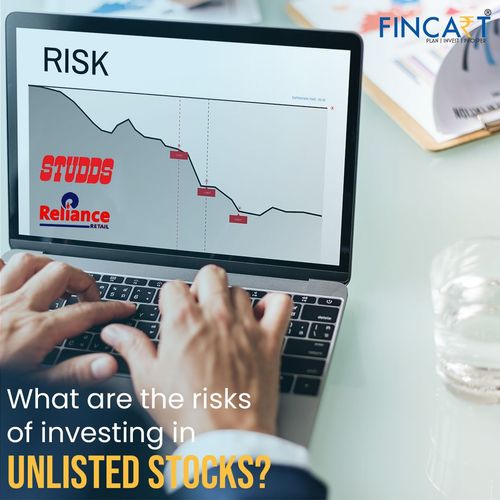Table of Contents
ToggleStock market investments are often regarded as a risky business. Furthermore, investing in unlisted stocks, which are subject to fewer regulations and have an informal market for buying and selling, may even be riskier.
As previously discussed in the blog, unlisted shares are not listed on any stock exchange. They can be high-growth companies or simply subsidiaries of other successful conglomerates. These Securities are usually companies that are still working at a private stage. but have the plan to go public soon at some point in time.
Unlisted shares offer a unique opportunity to earn a low-risk, high-return (high possibility of multi-baggers) that is not available in the listed market.
A company generally does not list on an exchange until it has reached a certain level of success and has a mature user base or revenue stream. As a result, massive value is created in the pre-listing phase, making it an attractive opportunity for investment planning. It is for this reason that investors remain eager to grab a slice of that value.
However, you need to know five risk factors associated with investing in unlisted shares to make sure that getting that bite does not leave you bitter.
1. Less transparency
When investing in any listed company, it is by law that the company is mandated to publicly report information that might impact the share prices. This could be anything from including a new business plan, any new deal, plans of borrowing money or even paying off any liabilities.
However, for unlisted companies the scenario is different. These companies are not under any obligation to inform you about the abovementioned change even if you hold a significant number of company shares. Major decisions are generally taken by the promoter of the company or big investors.
2. Liquidity Risk:
For any investment liquidity risk is considered to be the biggest risk. In simpler terms, it means that you may not be able to sell your investment whenever you need money without making any significant loss of capital.
Let’s say you own 100 shares of a company. Having learned that the company will go public soon, the value of your investment has soared 10x due to increased demand in anticipation of the IPO.
Now, if you need money for an emergency purpose. Redeeming your investment at this time is the best decision. But now imagine a situation where the company announces it won’t offer an IPO for another six months because the market isn’t conducive.
The uncertainty has crept in and you are forced to hold on to your investments when few investors want to buy your shares. A liquidity risk like this is just one example. In addition to unlisted shares, low-volume shares on stock exchanges can also be subject to this risk.
3. Valuation Risk:
When there is no liquid market and little financial information about the company, it is difficult to determine a fair value.
An analyst typically values a company by its earnings statements, its growth plans, how it manages its debt, and how management speaks about it. Tracking the demand and supply of shares is valued by the market. In most cases, this is reflected in the price of the shares.
In the case of unlisted shares, most of this information is either unavailable or not readily accessible. Thus, you may be paying much more or selling it for much less than the share is worth.
4. Dilution Risk:
Businesses that are in the growth phase try to generate capital to expedite their expansion plans. A major way to get capital is to issue new shares of the company to new investors. You may have to do this, but it usually means that your shares are worth less than they were before.
To understand this, let’s examine a simple example.
A company with a value of Rs 100 crore has 100 issued shares. In other words, every share now has a value of Rs 1 crore. As a result, the company’s management approves the issuance of 20 shares to a new private equity investor for the same valuation.
Now there are 120 shares and the value of the company is still at Rs 100 crore, meaning the value of one share falls to Rs 83.33 lakh.
This is a bare-bone example and practically, issuing shares is much more complex, but it gives you an idea of the dilution risk for the existing investors
5. Market Risk:
Unlisted markets are affected by the sentiments in the listed markets. Whenever the listed markets rise and investors trade high, the unlisted market also sees an increase in demand for shares.
On the other hand, pessimism in the stock market can also quickly spread to the unlisted market. Consequently, if you want to sell your investments, you may not get the best price.




